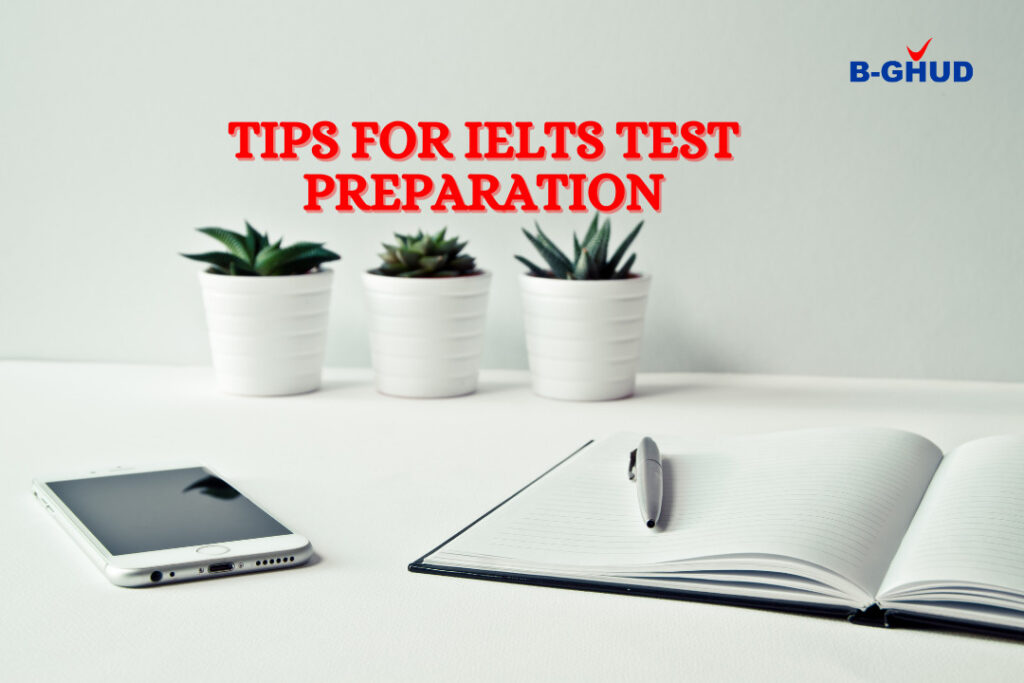How to excel in OET Writing Module at the first attempt?

Mastering the Writing Module of Occupational English Test is the manifestation of a few skills to write a formal referral letter in clinical setting. As it is a language proficiency exam specifically designed for healthcare professionals, an OET candidate must be aware of the assessment criteria of the exam. The Writing module of the OET assesses candidates’ ability to communicate effectively in writing within a healthcare context keeping in mind the Purpose and the Content. Its conciseness, clarity, genre and style, organisation and layout, and layout are assessed. The Writing Module has only one task. The goal of the Writing section is to mimic a real-world situation and gauge a candidate’s ability to respond to typical workplace scenarios. In most cases, candidates are tasked with composing a referral letter. In addition to the communication skills in English, a candidate is expected to organize only the required information in the letter. By taking the OET Test, you will be learning the kinds of vocabulary and phrases you will need every day at work in your new country. Not only will you prove you have the right level of English – you’ll be ready to perform in the global healthcare industry. A few key aspects to consider when preparing for the OET Writing module are appended below: 1. In the OET Writing module candidates are required to produce a piece of writing that is relevant to the healthcare profession and meets the needs of the intended recipient. 2. It is crucial for candidates to understand the purpose and audience of each task. For instance, in the letter task, candidates may be asked to write a letter of introduction, explanation, or advice to a patient, colleague, or supervisor. In the referral or discharge letter task, candidates are expected to summarize a patient’s condition and treatment plan concisely and accurately. 3. Organizing the content logically is essential for clarity and coherence. Candidates should follow a clear structure for their writing, including an introduction, body paragraphs, and a conclusion. Each paragraph should focus on a single main idea and be well-developed with relevant details. 4. The language used should be professional, clear, and appropriate for the healthcare context. Candidates should demonstrate a wide range of medical vocabulary and terminology related to their specific profession. Additionally, they should pay attention to grammar, punctuation, and spelling to ensure accuracy and clarity. You can also read: How to Prepare for the OET Exam: A Comprehensive Guide 5. Time management is crucial during the exam. Candidates should allocate enough time for planning, writing, and reviewing their work. It is essential to prioritize tasks based on their importance and allocate time accordingly to complete both tasks within the given timeframe. 6. Like any other skill, writing for the OET requires practice. Candidates should familiarize themselves with the format of the exam and practice writing within a healthcare context. Taking practice tests and seeking feedback from tutors can help identify areas for improvement and enhance overall performance. In conclusion, mastering the OET Writing module requires a combination of understanding task requirements, organizing content effectively, using appropriate language, managing time efficiently, and consistent practice. By focusing on these key aspects, candidates can increase their chances of success in the OET exam and advance their healthcare career. Want to be a part of the Best OET Coaching Centre in Kerala? Join now: https://bghud.com/all-courses/
How to organise and write an OET Letter to score well at the 1st attempt?

We would like to present here 8 easy tips to help you score a high band in OET Writing. Since OET is A life-changing global English exam in a clinical setting, it has its own parameters for assessing a candidate. In addition, as the applicant is bearing the cost of the exam fee of Rs. 34000, it is the responsibility of the candidate to succeed in this life-changing exam at the first attempt. Make sure you understand the task requirements, whether it is a referral letter, discharge letter, etc. All the components outlined in the task must be addressed. How to create a structure in OET Letter Writing? Organize your writing with clear paragraphs for the reader to understand taking less time. Use an introduction, body paragraphs and a conclusion. Each paragraph should serve a distinct purpose for clarity. In reality, the candidate will be given more details than required. As such, the ability to select only the required details and organise the letter in a way that is expected of you, needs more practice. The OET exam conductors expect a professional tone and apt language. It must be learned how to maintain a professional and courteous tone throughout. You can also read: Unlocking Nursing Excellence: Empowering Nurses with Proficient English Skills at B-GHUD Academy The proper use of medical terminology appropriately and accurately can be achieved only by regular practice. Avoid overly complex language because the purpose of a letter in the medical world is not to impress anybody, but to convey the correct message without using jargons or high-sounding words. Marks will be less if your letter is not written the way OET examiners expect. Avoid writing anything which hinders clarity. It must be borne in mind that the content and cohesion should be apt to the message of the letter. Ensure your ideas flow logically and coherently. Use linking words to connect sentences and paragraphs to make your writing more cohesive. (cohesion means the flow of ideas in a logical order) When you write you should have the reader in your mind. Since time is precious in the world of health care, understand your audience and write directly to them. Showing empathy (deliberate attempt to understand others’ feelings) would give your letter a cutting edge if you are writing a patient-centered letter. The art of presenting details accurately and logically must be learnt. If you forget to provide relevant information, it will not attract a good score. Be precise and thorough in describing medical conditions, treatments, and follow-up plans. Know more about our No.1 OET coaching centre in Kerala Managing time is vital in OET as in any other global exam. Allocate your time wisely. Time should be allotted to plan your letter, allowing enough time for each section (introduction, body, conclusion, etc.) to ensure completeness. On completion of the letter, it must be reviewed and edited thoroughly. Always leave time for proofreading. Check for grammar and minute details such as spelling and punctuation errors. Ensuring clarity and coherence before submitting will help you attract more marks. Practise incorporating these tips into your writing to enhance your OET performance. Hope these aspects would help you achieve the required score.
Unlocking Nursing Excellence: Empowering Nurses with Proficient English Skills at B-GHUD Academy

The world is fast changing and so is nursing. Newer opportunities to reach excellence as a professional and as an individual knock the doors of aspiring nurses. It is always good to learn that contemporary nursing has so much more to offer than traditional nursing. In progressive nations, nursing as a profession has reached greater heights than what the same offers here in India. Nursing informatics, nursing research, nursing advocacy, entrepreneurship, intrapreneurship, tele- nursing and many more such spaces are opening up. The most needed quality to pursue any of these newer offshoots of this profession is the skill of effective communication. More and more universities across the globe have identified the need to equip aspiring nursing students with the skill to initiate and engage in professional communication in a clinical setting. Interestingly, the enrichment that happens to cognition and comprehension with the learning to use Lingua Franca efficiently is the perhaps the only tool that a nurse may need other than other professional and personal skills. Therefore, it is very much important to learn English in such a way that, the learning helps you to extend your professional frontier. Further, the training centre you choose to get trained for your English proficiency tests must be one such that gives you more than a clubbing score. It should up- skill your English. There are so many coaching centres that claim to be the best. Choose your coaching centre based on its consistent results and quality training. B-GHUD academy at Mavelikkara holds a legacy of 28 years in the field of training job aspirants across various sectors to reach their dream job. Why B-GHUD academy is different because, it keeps on challenging its own course of action. It does rigorous check of its teaching and learning processes and always keeps an open and accepting front to improve its own standards. B-GHUD academy is no opponent to any other institutes, as we regard ourselves as a developing institute even though our results have been scintillating. We have our own materials that aim not just at getting a mere gate entry score, but at providing an exhaustive experience of learning to use English with confidence, without mistakes. Learning English not limited to learning grammar. It should enable a user to comprehend and produce language with precision. This is what B-GHUD academy aims at. We are in the process of ensuring the safety of the future of young nurses and experienced nurses alike. We consider ourselves to be lucky that we are getting the opportunity to help nurses crack OET. Remember that, action speaks more than words. Our coaching is not about spewing empty promises. We value your time, effort, and money at B-GHUD academy. We welcome you to experience and learn English along with us. Let’s march forward hand and hand. When you reach your goal, we feel fulfilled. Yes dear nurse, you matter a lot to us. Your success is what makes B-GHUD academy strong.
Why healthcare professionals should choose OET exam?

It is a bright idea for Healthcare professionals to choose the OET (Occupational English Test) for several reasons. It’s specifically tailored to medical English, reflecting scenarios they encounter in their field. Additionally, it’s recognized by healthcare regulators and organizations globally, making it a preferred choice for professionals seeking to work or study in an English-speaking healthcare environment. Want to be a part of the No. 1 OET Coaching centre in Kerala? Join now: https://bghud.com/course-registration/
How to select your OET Coaching Centre?

Occupational English Test is a gateway for medical and paramedical professionals to work in progressive nations. Ever since OET was established as a tool to assess English proficiency of non English speaking professionals, it has been successful in manifesting the career and personal dreams of those in real and assessable indices. However, the same drive and desire to gain a life of individual satisfaction and optimum lifestyle has led to an influx of so many coaching centres that claim to render quality training to OET aspirants, both online and offline. It is definitely a debatable topic if all of these institutes walk their talk. Ironically, so many candidates do not make the choice of institute based on educational indices. When put against marketing tricks and baits, it is definitely scientific and evidence based educational techniques and methodologies along with rigorous quality control that give a longer running and consistent victory to such coaching centres. While narrowing down the list for best OET coaching centres there are some useful markers that a candidate can use to put finger on THE BEST CENTRE. Some of them are, 1. For how long has the institute been in operation? This is the most important index, perhaps. A centre that has been functioning through the ebb and flow of time mostly has an approach to ensure maximum conversion. By the word conversion, the rate of success is emphasised. 2. What is the admission to conversion rate of an institute? It is not the bill boards or the colourful promotional videos that actually speak the true success stories. They could fairly be nothing more than promotions. However, by selecting word of mouth and interacting with alumni of the institute, an aspirant can make a wise choice. Know more about our Top OET coaching centre in Kerala 3. Does the institute have an internal auditing that goes in concurrence with academic standards to ensure language up skilling? Well, this is a prominent index to watch for. As per the changing requirements of IDP or whichever governing body that runs the test to award scores, the institute must be able to adapt and deliver coaching. This requires constant vigil and flexibility. Institutes that write textbooks and do revisions in its learning materials when coupled with above average results may be taken as one with such standardization. 4. Does the institute train differently skilled aspirants considering their individual differences in linguistic skills? Seldom institutes take up such an arduous task since it requires specially skilled teachers who are constantly given additional trainings as staff development programmes. Along with manpower, an institute would require special teaching and learning materials with the appropriate support of digitalization. So, if you are an OET aspirant, check the above mentioned markers and carefully scan through all the options while zeroing in. Want to be a part of the No. 1 OET Coaching centre in Kerala? Join now: https://bghud.com/course-registration/
Strategies for Achieving a Top OET Reading Band Score on Your First Try

OET READING IS NOT THAT DIFFICULT. HOW TO GET A HIGH BAND IN OET READING AT THE 1ST ATTEMPT? Reading is the assimilation of information and analysing THEM objectively. First, learn that reading helps is broaden our horizons, enhances our logical thinking and last but not least familiarise you with words, synonyms, antonyms, idiomatic expressions and the much needed collocations. Academic reading of OET warrants for unique skills such as the ability to comprehend the gist of a paragraph, to read between the lines and to finish answering questions within the stipulated time. If you spend your time in the exam hall, just watching others and to think of your past adventures or future dreams, you are certainly on the wrong track. Although there are many strategies to get a high score, developing a habit to reading medical articles, (if possible reading the numerous academic articles available in medical journals in the internet) should be the first step. Of all the good qualities of a competent candidate, consistent practice with a variety of OET reading materials will help you to be in a world of academic reading. It will help you become familiar with the question types and improve your reading speed, the vital aspect of this subskill and comprehension.(understanding the passage in context) You should learn to quickly skim the text to understand its main ideas and then scan for specific details required by the questions. It would be a good habit to mark important words, phrases, or information in the text that relate to the questions. This can save your time when you need to refer back to the passage. Try answering questions in order, as they usually follow the passage’s sequence. This can help you maintain a logical flow while answering. You can also read: How to crack OET at the 1st attempt? Learning to eliminate wrong answers is an art in itself. If you’re unsure about an answer, eliminate the incorrect options. This improves your chances of selecting the correct answer. Having a good collection of synonyms and the ability to paraphrase sentences will make this module easier. Focusing on synonyms and the paraphrased sentences in the text would facilitate you to answer questions correctly in the given time. Keep in mind that questions might not use the exact words from the passage. Therefore, an objective analysis of questions and the ability to answer them logically will take you a long way in getting a high band. In every global English exam your ability to manage time in the exam situation is certainly assessed. Allocate a specific amount of time per question and stick to it. Don’t spend too much time on a single question. It goes without saying that a good command of vocabulary is of great importance in OET reading. Instead of just reading a list of words and their meanings, it would be better to read them in medical situations. Enhance your medical vocabulary, as it is often used in OET reading passages. This can help you understand complex terminology in various context of healthcare. Try to learn the tone and the purpose of the passage. Assess whether the passage is informative, instructive, persuasive etc. This will help you answer questions in the right way in the time given. It is of great importance to find time to analyze your reading passages and learn from your mistakes. Every mistake should make you aware of your weaknesses and should help you avoid them. Learning from ones own mistakes is an exceptional quality of the bright. Reflect on why you got certain answers wrong and work on improving those areas. Remember, consistent practice and focused improvement in your weak areas are key to achieving a high band score in the OET reading test. You can certainly get your required score at the 1st attempt if you are focused, able to manage your time effectively, and to learn from your own previous mistakes you had made in our OET Mock Tests of Reading earlier. Wish you success in OET at the first attempt.
How to Write a Discharge Letter in OET Medicine: A Step-by-Step Guide?

In the field of medicine, effective communication is paramount. As a healthcare professional, one of the essential skills you need to possess is the ability to write a comprehensive and coherent discharge letter. The Occupational English Test (OET) assesses the language proficiency of healthcare professionals, including their writing skills. Here is a look at a step-by-step guide on how to write a discharge letter in OET Medicine from the best OET Coaching Centre in Kerala to ensurethat you convey all the necessary information accurately. Step 1: Understand the Purpose and Audience Before you start writing, it is crucial to understand the purpose of a discharge letter. Typically, a discharge letter summarizes a patient’s medical history, treatment received, and future care plans. Your audience will consist of healthcare professionals who will be involved in the patient’s ongoing care. Keep in mind that the OET assesses your ability to communicate effectively with a range of healthcare professionals, so you should write with clarity and precision. Step 2: Gather Relevant Information To write a comprehensive discharge letter, gather all the relevant information. This includes the patient’s personal details, medical history, diagnosis, treatment provided, medications prescribed, and any follow-up instructions. Make sure you have all the necessary medical records, test results, and consultation notes to refer to while writing. Step 3: Structure Your Letter A well-structured letter is easier to read and understand. Start with a formal salutation, such as “Dear Dr. [Recipient’s Last Name].” Then, introduce the patient’s name, age, and admission dates. In the main body, provide a summary of the patient’s medical history, including the reason for admission, diagnosis, and treatment received. Use clear and concise language, avoiding jargon or complex medical terms that may confuse the reader. Step 4: Include Relevant Details In the body of your letter, include all relevant details about the patient’s treatment. Describe the procedures performed, medications administered, and any significant observations made during the hospital stay. Mention any complications encountered and how they were managed. If necessary, provide recommendations for further investigations or referrals to other specialists. Step 5: Outline Follow-up Care It is essential to outline the patient’s future care plans in your discharge letter. Specify any medications to be continued or discontinued, along with the dosage instructions. If there are any lifestyle modifications or dietary restrictions, mention them clearly. If the patient requires any further appointments or tests, provide the necessary details, such as dates, times, and locations. Step 6: Proofread and Edit Once you have written the discharge letter, take the time to proofread and edit it. Check for any grammatical or spelling errors and ensure that your sentences are well-structured and coherent. Pay attention to punctuation and formatting. It is advisable to read the letter aloud to identify any awkward phrasing or unclear passages. If possible, ask a colleague or mentor to review your letter for feedback. Step 7: Maintain Confidentiality Confidentiality is of utmost importance in healthcare. Ensure that you maintain patient confidentiality throughout your discharge letter. Avoid using the patient’s full name or any other identifying information unless absolutely necessary. Use generic terms or initials instead to protect the patient’s privacy. Final Thoughts: Writing a discharge letter in OET Medicine requires careful attention to detail and effective communication skills. By following these step-by-step guidelines, you can create a well-structured and comprehensive letter that conveys all the necessary information to the recipient. Remember to practice regularly to improve your writing skills, and seek feedback from experienced professionals to enhance your performance in the OET.
CLARITY IS KEY IN IELTS

CLARITY IS KEY IN IELTS There seems to be a wrong notion embedded in the minds of IELTS test takers that it is mandatory to write or speak high-sounding words in the IELTS exam. Using bombastic words need not attract a high band in IELTS. Topic related vocabulary or reasonably uncommon WORDS, but with contextual relevance, are expected in IELTS Writing & Speaking for a score 6.5 or above. High end words in IELTS do not mean that certain high- sounding memorised words or some confusing and misleading phrases. What the IELTS exam conductors mean is that if you are smart enough to use the right collocations and right words which are suitable for the topic discussing, you can attract a score above 6.5 band or more. However, in reading your familiarity with many uncommon words, understanding of the meaning certain uncommon words and their contextual use might be useful. It is because some reading passages appear to be difficult as there may be quite a few difficult lexical resource, especially in the 3rd passage. Suffice to say that having a good command of vocabulary is required, but not the use of any misleading words or phrases to impress the examiner. It is worth to note that examiners are trained to identify the use of unnecessary and bombastic or declaratory words or phrases. B-GHUD ACADEMY Mavelikara & Kochi
TIPS FOR IELTS TEST PREPARATION

IELTS is an international English language proficiency test and it has been designed in such a way that all the skills necessary to have a good standard in the language are tested. There are certain important matters that an IELTS aspirant should essentially know to be able to face the test confidently. Know first of all that passing IELTS is no child’s play, but neither is it a very difficult task. If you know what to do and prepare yourself accordingly, you can easily become an IELTS holder. Here, B-GHUD Academy, the best IELTS coaching Centre in Kerala, shares their 26 years of experience in the field to help students. The IELTS test format It is extremely important that you know the IELTS test format. The key to your success in IELTS is a sound familiarity with the test pattern and format. B-GHUD has published one of the bestselling books in India on IELTS, “IELTS & TOEFL Made Easy,” which contains exhaustive information on each and every aspect of the test. It will give you all the information, tips and lessons that you will need to face IELTS with a smile. IELTS Listening Module IELTS listening module is demanding. You have to provide answers to 40 questions during 4 recordings. The recordings will be played only once. Typical questions include sentence completion, summary completion, form completion and multiple choices. It is possible for you to get lost during a conversation, but you need to recover fast or you will miss all the questions of that task afterwards. This would be a disaster. As such, it is essential to understand how to follow a conversation, even if you miss something and how you can recover to continue answering the next questions. You are also expected to understand what type of information to supply depending on the question type – a number, a name, an address etc. The Speaking Module This test is less than 15 minutes long and is split into three parts. The first 5 minutes are reserved for introduction and general topics between the test taker and the examiner. The second part assesses the test taker’s ability to speak about a random topic given on a cue card. The last part merely adds complexity to the second. At this stage, the examiner will also pay attention to pronunciation, lexical resources and fluency. Practising each part under exam conditions is essential to your test preparation and you will also get used to the pressure you will have during the test. You need to be able to write down notes that will help you to talk for two minutes during the second part of the test. You should also practice answering questions when you don’t really know the answer. Remember that your knowledge is not assessed but your English language proficiency is. IELTS Reading Module The IELTS reading module tests a wide range of reading skills such as reading for gist, reading for main ideas, reading for detail, skimming, understanding logical argument and recognising writers’ opinions, attitudes and purpose. Test takers have to provide short answers, match information, complete sentences, match headings or complete diagram labels. It is essential, therefore, to practise includes a wide variety of questions so that you become accustomed to each type. As such, developing a wide range of reading skills is essential. Timing is of vital importance in the reading module. You will not have the time to go through the texts several times. There are strategies to help you to avoid this situation, for example, how to skim the text and what kind of information you need to focus on. The Writing Module It is found that the writing module is the most difficult of all. Both tasks in the academic training must be written in a formal style. Task 1 requires that you interpret a graph/chart/table etc., which requires significant practice in English. Task 2 is writing an essay on a given topic and presents a number of challenges. Often, the topic given can be hard to develop if you are not familiar with it. In addition, the essay must have a proper structure. For Task 2 requires that you write different types of essays such as Agree or Disagree, Discuss two Opposing Opinions, Advantages and Disadvantages, Problems and Solutions, Causes and Solutions, Causes and Effects. You have to familiarise yourself with the structure of an essay, how to develop it, how to write the introduction and the conclusion. You must be able to connect your ideas using cohesion and coherence. Tips in general Take a practice test. Understand the test format. Be aware of the exam time constraints. One of the biggest mistakes students make is to forget to improve their English. Start preparing for your test well in time. We recommend finding an institution which will help you with English development and IELTS strategies. Listen to native speakers talking to one another and if possible join in. Bear in mind that self-learning is possible as long as you are committed. Above all, to make things really easy for you, why not join B-GHUD Academy, the leaders in the field and the top training Centre for IELTS in Kerala, India?
BEST IELTS WRITING STRATEGIES IN 2023

To live up to its reputation of being the best IELTS training Centre in Kerala, B-GHUD Academy keeps striving to provide its IELTS students with whatever guidelines are necessary. Here are the IELTS writing strategies IELTS students should be equipped with to enable them to do commendably well in the IELTS tests. 1. IELTS writing is for 60 minutes. Task 2 (Essay) is longer than Task 1 (Graph/Letter) and it also fetches double the marks. It is, therefore, important that students wisely divide the time for each task. Spend 20 minutes on Task 1 so that they can take 40 minutes to attempt the essay comfortably. 2. IELTS students should essentially read and understand the topic thoroughly well. It is because an IELTS essay should address the different parts of the topic relevantly. Otherwise, the task would not be achieved and the IELTS student will lose marks. 3. While writing the introduction, every IELTS student should make sure that they use their own words. Copying the topic as it is to write the introduction will be penalised – copied material will not be counted and your total word count would come down. Make sure that you rephrase the topic for your introduction. 4. After having thoroughly understood the different aspects of the topic – that is, after ensuring exactly what points in the essay are to be dealt with – make a plan mentally on how to approach the essay, what to write and how. You may use rough paper to jot down the points. 5. Divide the main body of your essay into paragraphs. You may write two or three body paragraphs depending on the topic. It is in these paragraphs that you present your main ideas. You should write these ideas clearly and support them with examples. If your ideas are clear and well-supported, you will get more marks. 6. While writing the main paragraphs, ensure that they are linked together using “coherence.” Your writing becomes exceptionally impressive if you use apt words or phrases for coherence. An example of good coherence is given below. a. Body paragraph 1 begins: “On the one hand….” b. Body paragraph 2 begins: “On the other hand….” The coherence used above clearly shows that your ideas are contrasting. All essays in B-GHUD books, “IELTS & TOEFL Made Easy” and “IELTS Writing Made Easy” (there are nearly 500 of them!) use an extensive range of coherence for the IELTS students to master prompt use of them. 7. You should write your essay in a discursive style. It means that the sentences you write in a paragraph should be linked together using connective words. It is known as “cohesion.” Cohesion ensures attractive writing. An example of cohesion is given below. “Space research is of great benefit to a nation. However, it is extremely expensive.” This sentence means that “although space research is beneficial, it is very expensive.” See how well the word, ‘however,’ connects the two sentences! Similar to coherence, our books, “IELTS & TOEFL Made Easy” and “IELTS Writing Made Easy” use countless examples of cohesion in their essays for the IELTS students to have a good grasp of them. 8. Lexical resources are another important factor in writing good IELTS essays. The test taker should try to use his own words. Remember, also, to use topic-related words. Topic-related words are those words that are closely related to the topic in question and are usually used frequently while writing or speaking about the subject. For example, if the topic is “pollution,” the related words are waste disposal, waste management, pollution control, effluent treatment, carbon emission, carbon footprint, global warming, environmental problems, greenhouse effect, climate change, deforestation, afforestation and so on. All IELTS essays in our books, “IELTS & TOEFL Made Easy” and “IELTS Writing made Easy” invariably use topic-related words, phrases and terms to benefit IELTS trainees. B-GHUD maintains its position as the top IELTS Coaching Centre in Kerala by ensuring that its students are provided with the best guidance. 9. GRA (Grammatical Range and Accuracy) is one of the main criteria for the evaluation of IELTS essays. Grammatical range means that the IELTS test takers should write a variety of sentence structures in their IELTS essays. B-GHUD book, “IELTS & TOEFL Made Easy,” caters to an extensive range of attractive structures (see pages 108, 109, 187, 239, 240, 300) for IELTS students to imbibe, so that they can write the impressive language. Grammatical accuracy generally means that the IELTS test takers should use the correct tenses in their IELTS essays. There are any number of interesting and intelligent exercises in our book, “IELTS & TOEFL Made Easy,” for the IELTS students to get adept at the use of the right tenses (“Syntax”) in their IELTS writing. 10. Writing the concluding paragraph is yet another important area where that IELTS students should be careful about. Since the conclusion is the last part of your essay, it creates a lasting impression on the evaluator. IELTS students should, therefore, try to make it striking. Your conclusion should not only be logical, but it also should not vary from the thesis sentence you have already written in the introduction. Consistency of your view is what the examiner looks for. 11. Last but not least, your word count should be sufficient (not less than 250 words.) Keep check of your word count from time to time while writing, so that your essay is neither short of the requisite word count nor too long. Whereas short answers will be penalised, you get no extra marks for long essays. Check your essay for grammar, spelling and punctuation errors before turning in your answer paper. We at B-GHUD Academy make it customary to train our IELTS students in line with these strategies. It is thus that we consistently achieve a high success rate and keep being the No.1 IELTS coaching centre in Kerala.
